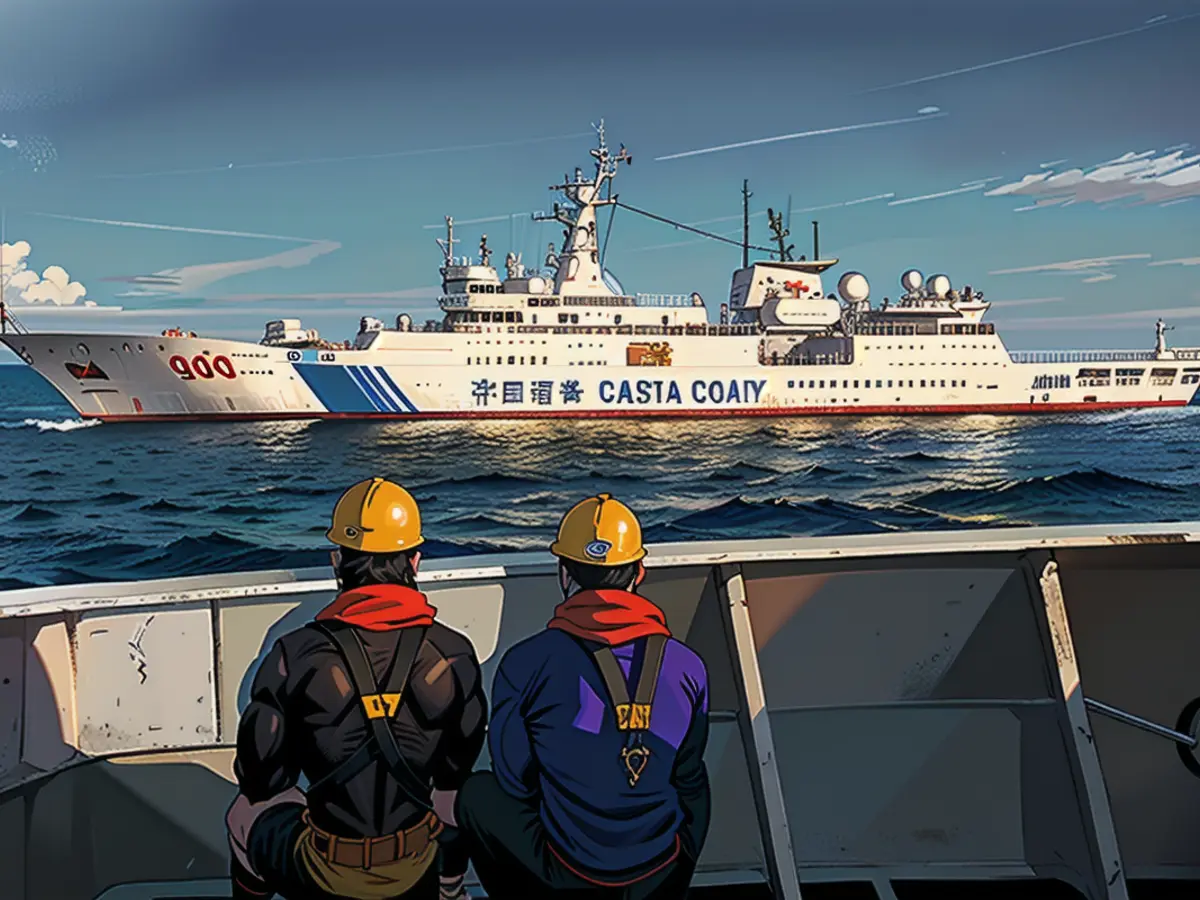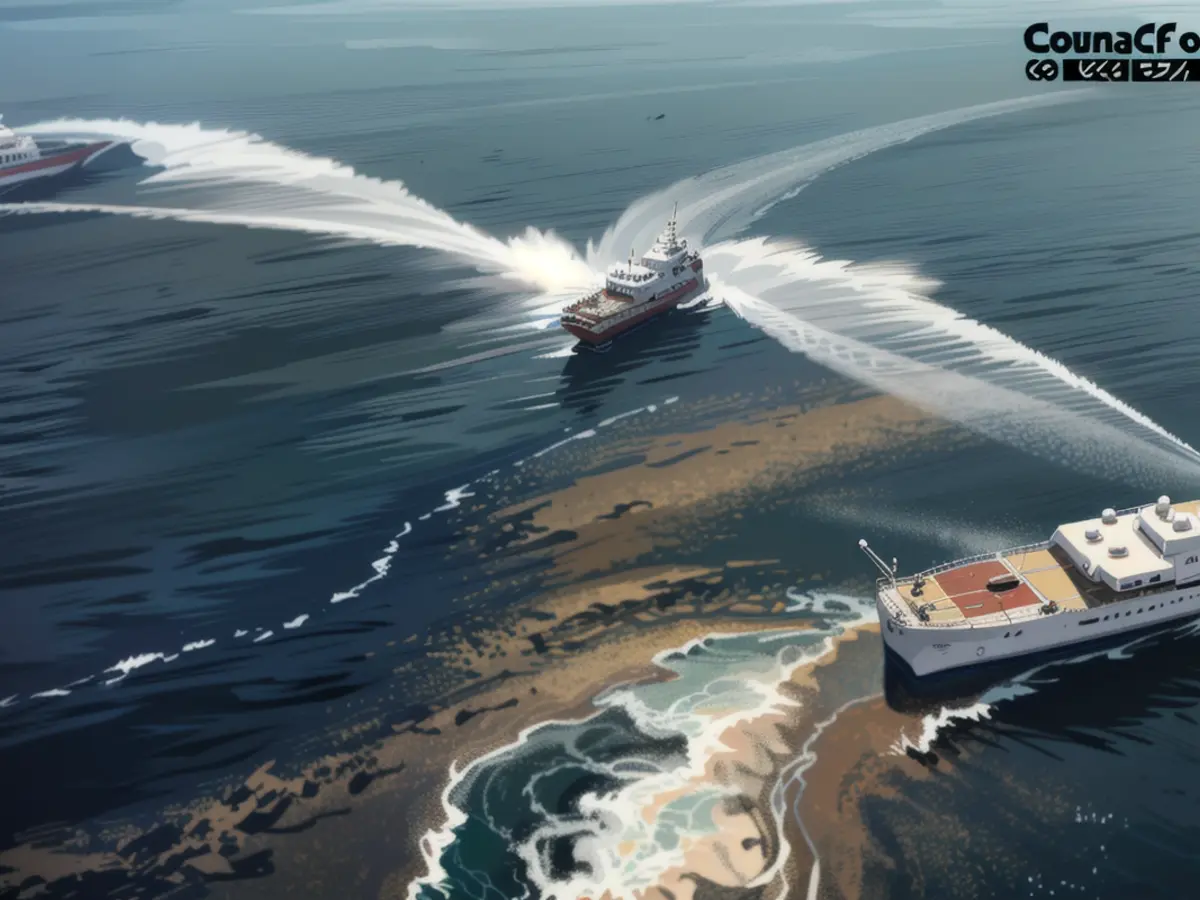The Filipino leader warns that if a death occurs during clashes in the South China Sea, it would be nearly considered an act of war.
Marcos gave the opening speech at the Shangri-la Dialogue in Singapore, a gathering of worldwide security leaders such as US Defense Secretary Lloyd Austin and his Chinese counterpart, Adm. Dong Jun.
The Philippine president was questioned if a "red line" would be passed if Chinese Coast Guard vessels, which have often employed water cannons against Philippine ships in recent months, killed a Filipino sailor.
"If a Filipino citizen is fatally hurt by intentional actions, that's incredibly close to what we define as an act of war, and we would respond accordingly," Marcos responded.
"And, in my belief, our treaty partners hold that same standard," he added.
China has been effectively extending its claims in the South China Sea, and Coast Guard ships, reinforced by maritime militia boats, have been involved in a string of contentious skirmishes in the last year, damaging Philippine ships and injuring Filipino sailors with water cannons.
As the Beijing-Manila relationship deteriorates due to these confrontations, Marcos has been working towards a closer relationship with the United States, with whom the Philippines has a mutual defense treaty.
In this relationship, the US has received increased access to Philippine military bases, and the two nations have expanded bilateral military exercises. US officials have repeatedly stated that the mutual defense agreement is "ironclad" and that Philippine naval, coast guard, and civilian vessels are all covered by it.
This raises the possibility that if one of the many maritime disputes between Chinese and Philippine vessels in the South China Sea were to result in fatalities, it could put pressure on Washington to support its ally and potentially drag the US military into the conflict.
"We have already had injuries," Marcos noted, referring to the contentious clashes with Chinese Coast Guard ships. "But fortunately, we have not yet reached the point where any of our participants, civilian or otherwise, have been killed."
"But once we reach that point [a fatality]... we would certainly have crossed the Rubicon. Is that a red line? Almost certainly it is," he said.
Important maritime route
China claims "absolute sovereignty" over almost all of the 1.3 million-square-mile South China Sea - one of the busiest waterways in the world. However, areas of it are also claimed by governments in Vietnam, Malaysia, Brunei, and Taiwan, as well as the Philippines.
In 2016, in a case initiated by the Philippines, an international tribunal in The Hague ruled that China's claim to historic rights to most of the sea had no legal basis.
However, China has disregarded the tribunal's ruling and continued its military expansion, with numerous features located hundreds of miles away from China's mainland. It also maintains a large presence of coast guard and fishing vessels, which have frequently escalated tensions with its neighbors.
Marcos touched on the issue repeatedly in his speech.
"Illegal, coercive, aggressive, and deceptive actions continue to violate our sovereignty, sovereign rights, and jurisdiction," he said, adding that the Philippines would defend its sovereignty "to the last square millimeter."
"The life-giving waters of the West Philippine Sea flow through the veins of every Filipino. We cannot allow anyone to detach it from the maritime domain that makes our nation whole," he continued.
In the past week, Marcos has raised concerns over a new Chinese policy that grants its coast guard new powers of detention in Chinese-claimed areas of the South China Sea, including areas that lie within the Philippine Exclusive Economic Zone.
While the Philippine Navy stated that it is ready to safeguard the rights of Filipinos and will be increasing patrols in the South China Sea, including disputed areas, a Chinese Foreign Ministry spokesperson stated earlier this week that the new regulations are "in line with common international practices."
"As long as there is no illegal behavior by any individual or entity, there's no reason to worry," spokesperson Mao Ning said.
"The one thing I'd like to emphasize is that China, not the Philippines, is the one that has frequently intensified the situation in the South China Sea," Ning added.
During his speech, Marcos also expressed concern about the escalating rivalry between the United States and China and its ramifications on the entire Asia-Pacific region.
"The strategic competition between China and the United States is infiltrating the evolving regional landscape. This rivalry is limiting the strategic choices of regional states. This contest is exacerbating flashpoints, it has created new security dilemmas," Marcos told the assembly.
"The continued stability of this region requires China and the United States to manage this rivalry responsibly," he concluded.

Read also:
In the context of global security, Marcos emphasized that if a Filipino life is lost due to Chinese aggression in the South China Sea, it would be near an act of war for the Philippines, potentially involving their treaty partners worldwide. China's expansive claims over the South China Sea, a vital global waterway, have led to numerous disputes and conflicts with neighboring countries, including the Philippines.







